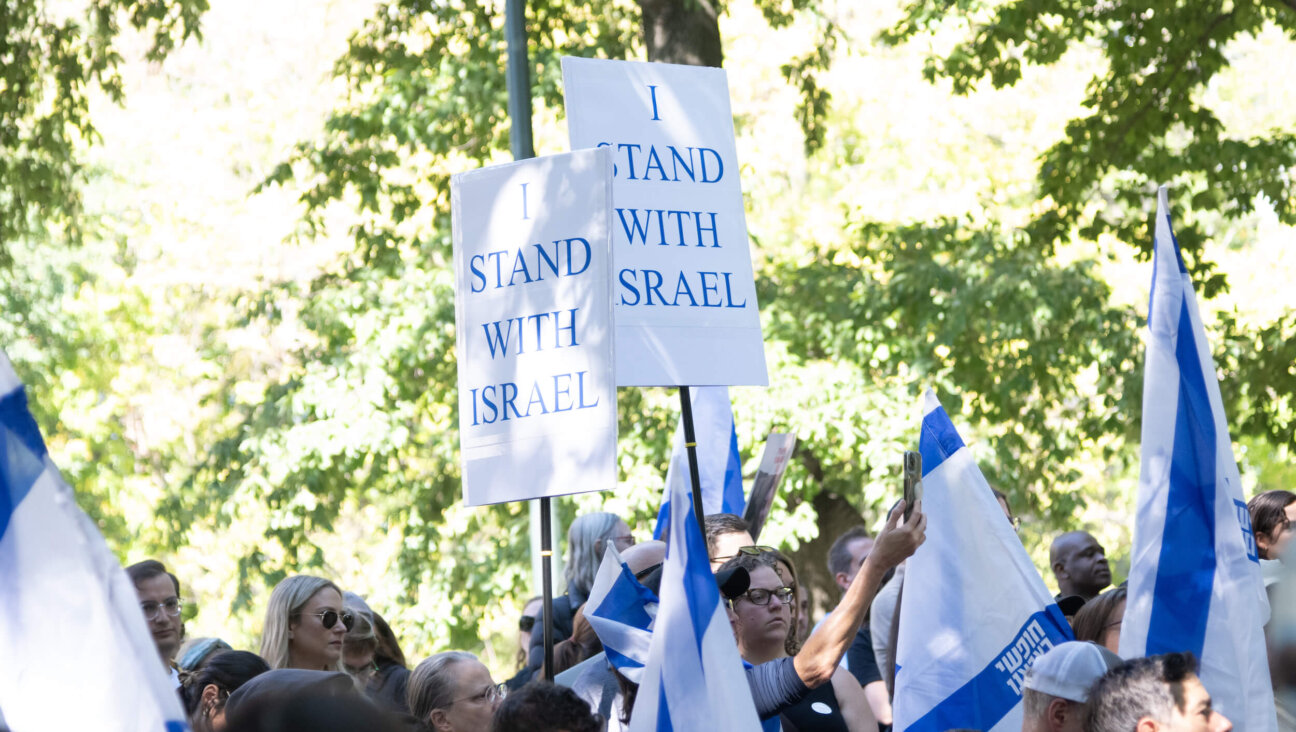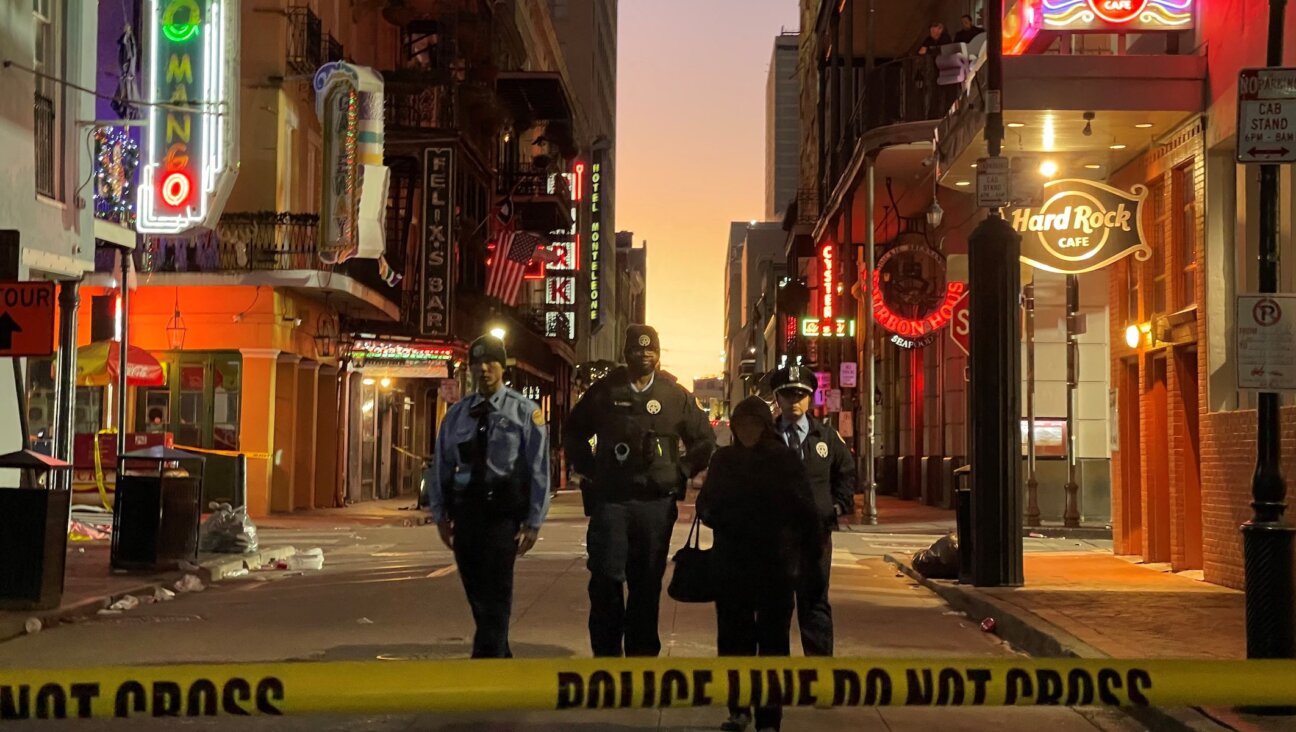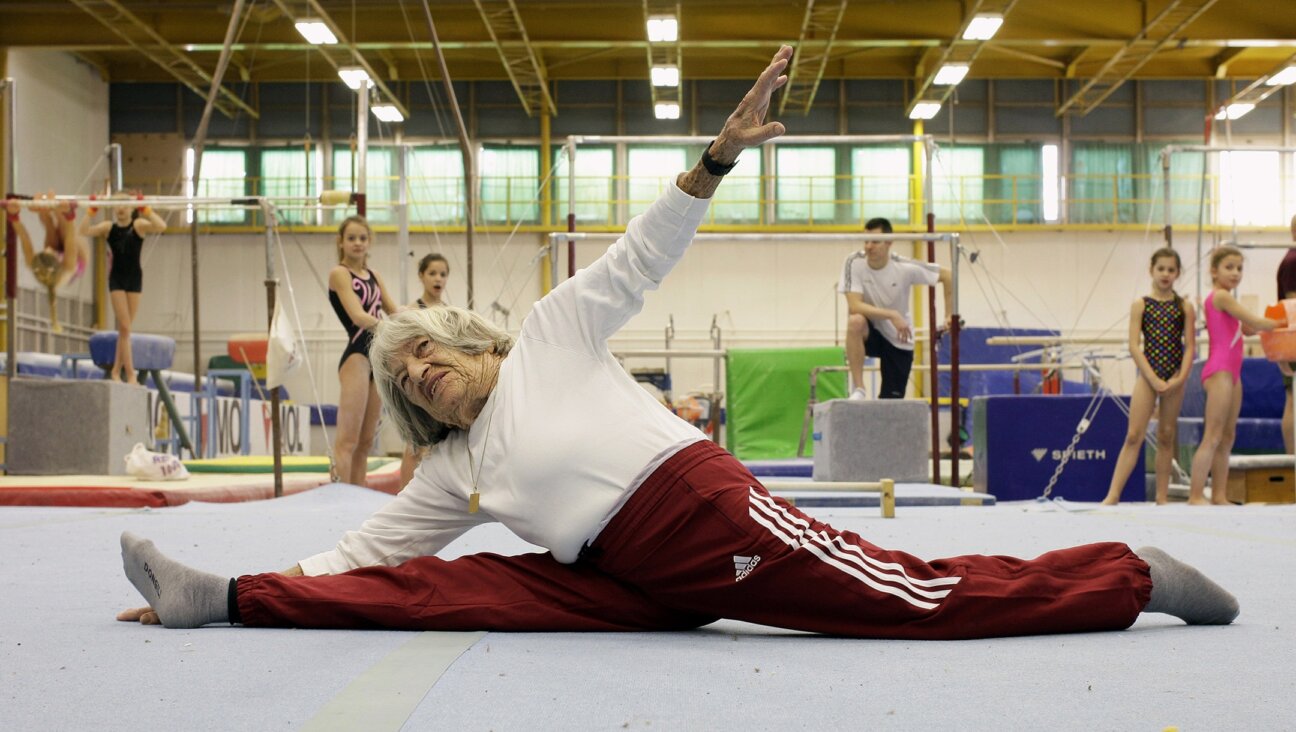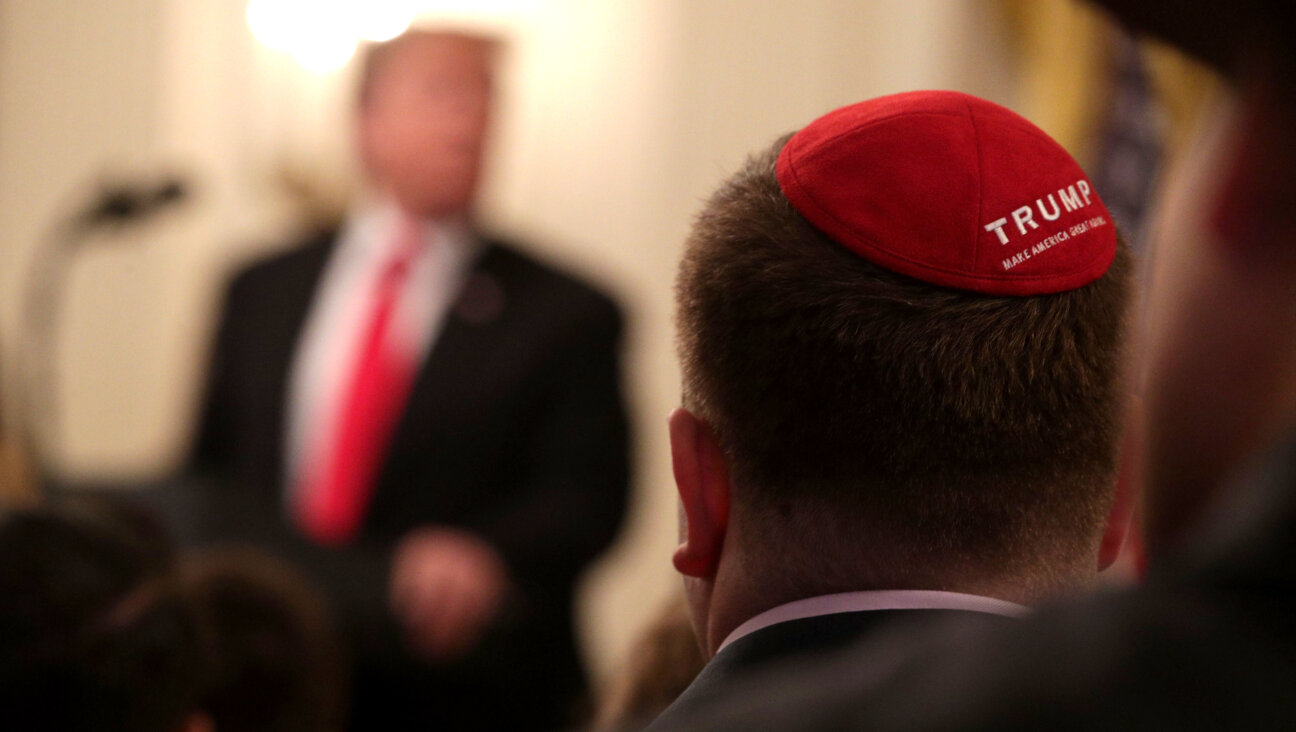I Was Protested At Bard College For Being A Jew

Image by Wikimedia Commons
When I was asked to speak at last week’s conference on racism and anti-Semitism at Bard College’s Hannah Arendt Center, I think my heart actually skipped a beat.
Arendt, the German-born political philosopher who fled the Nazis in the 1930s and eventually settled in New York, is the thinker who has most deeply influenced me, and racism and anti-Semitism are two topics I think about constantly, the most pressing issues of our time. It was the perfect combination of topic and venue, and the list of confirmed speakers included luminaries whose work I had read, whose writing and thinking I deeply admired.
Watch video of the conference here.
“I am so incredibly humbled to be included in this event and I accept with great honor,” I wrote back to Roger Berkowitz, the founder and director of the center and organizer of the conference.
I was invited to host a breakout session of my choosing, and I proposed a workshop on navigating other people’s opinions in the age of Trump – a topic of deep importance to my work as Opinion Editor of The Forward, where we insist on representing the full gamut of legitimate opinion. Ten days before the conference started on Thursday, I found out I would also be one of three people on a panel called “Racism and Zionism: Black-Jewish relations,” and moderator of another session, with Ruth Wisse, a Harvard professor of Yiddish literature and scholar of Jewish history and culture, and Shany Mor, an Israeli thinker who is affiliated with the Hannah Arendt Center.
I prepared eagerly. I read everything Wisse had written on anti-Semitism, and formulated some questions to probe at the areas where our views diverged. I wrote up my thoughts the charge that Zionism as racism – a holdover of Soviet propaganda that I looked forward to debating, as well as polling that shows African-Americans overall to be more pro-Israel and less sympathetic to the Palestinians than white liberals.
Get the latest news from the Jewish world delivered straight to your inbox.
And for the breakout session, I planned to divide the audience into small groups and ask them to pretend they were running an Opinion section in these polarized times. Their task would be to create a set of rules governing their imagined section to determine who gets in and who does not. But like in a democracy, they would have to come to a consensus about those rules.
I never got to say or do most of these things.
When the conference began Thursday morning, I was warned that protesters from the Bard chapter of Students for Justice in Palestine planned to interrupt my panel with Wisse and Mor. I was surprised they were not targeting the one on Zionism, but the one on anti-Semitism, the only panel of about 20 over the course of the two-day program where three Jews would be discussing the topic.
“But we’re not even talking about Israel,” I said to the conference organizers. “How does that make sense?”
My concern was met with an explanation of the College’s policy towards protesters. The center’s leadership, and the two Bard College deans attending the conference, seemed to have no particular plan to handle what was fixing to become an ugly disruption of Jews trying to discuss anti-Semitism. Berkowitz told us that there would be added security, but the security officers were not allowed to remove the students.
As the protesters started to gather in the lobby, I approached them. I told them that I respected their passion and commitment to what they thought was right, but asked why they had picked this panel.
“Come to my panel tomorrow,” I said. “Come protest my comments on Zionism. I’ll be talking about the occupation. Bring your signs.”
I told them I’d reserve the first and second audience-questions for members of their group, but that protesting the all-Jewish anti-Semitism panel was undercutting their work.
“Don’t you see that?” I asked. Didn’t they see that protesting Jews over Israel when they are not even talking about Israel is racist? Didn’t they understand that saying we were responsible for the behavior of the Israeli Jews just because we shared their ethnicity was racist? That making every conversation with Jews about Israel is racist?”
“The conversation about anti-Semitism is already inherently about Israel,” one of the students archly explained, repeating a deeply anti-Semitic trope that has been voiced across the spectrum from David Duke to Louis Farrakhan to Jeremy Corbyn’s supporters. Right-wing anti-Semites see any accusation of anti-Semitism as a Jewish conspiracy to take away the rights of whites, while left-wing anti-Semites sees the same accusation as an attempt to silence Palestinians.
Apparently, so do some Bard students.
I started to respond, but was beat to it by member of my panel on Zionism and racism, Shahanna McKinney-Baldon, who was, astoundingly, encouraging them.
“I disagree with what she is saying,” McKinney-Baldon, a black Jewish educator who is starting a diversity initiative in the Midwest told them. “I support what you’re doing. I think you should protest.”
I was shocked that someone the Hannah Arendt Center had invited to discuss racism and anti-Semitism was actually egging on what was a blatantly anti-Semitic protest. But she would not be the only one.
When the protesters proceeded to interrupt Wisse, they were applauded by several of our fellow conference speakers in the audience. These vaunted intellectuals, flown in from across the country to discuss racism, were commending a display of racism against Jews.
This was much more horrifying than the students’ chanting and leafletting, which failed to stop the indomitable Wisse from having her say, defining anti-Semitism as any political organizing against Jews (I have been told since that two students were removed, something I didn’t see from the stage, but the rest stayed). Not one of our fellow conference speakers got up and exercised their free speech rights to call the protest what it was. Not one came over to us after to express shock and horror that three Jews would be denounced for Israel’s actions while attempting to discuss anti-Semitism in America.
There was some support for us from the audience, and Berkowitz, the conference organizer, and the Bard deans did apologize later, and even managed to usher the students out, finally, when during the Q&A and they chanted so loudly that we couldn’t proceed.
But not one of my fellow speakers said a word. Two days later, I have not received a single note acknowledging what happened, which leaves me thinking they condone it.
And some were explicit about it. At a party for conference speakers at Berkowitz’s house right after the panel, Etienne Balibar, a French philosopher currently teaching at Columbia University, told me he thought the protest was wonderful.
“Why are you silencing Palestinians?” he demanded. “There should have been a Palestinian discussing anti-Semitism. They have many thoughts about it!”
I left the party. How could I drink with people like that? And back at my hotel, I realized that it would be pointless to participate in Friday’s program. There is no debate possible when people think anti-Semitism is not only acceptable, but commendable.
So when I was introduced the next morning, I pulled out a new set of remarks. I directly addressed these academics and writers and intellectuals who were brought to Bard to speak about how to fight racism and anti-Semitism. I told them I was appalled that not one of them had called out this blatantly racist act, the way they surely would have if it had been three Muslims on the dais, or three black speakers — or at least, the way I would have in that scenario.
“I’m horrified by your cowardice. By your self-justifications,” I read from the new set of remarks I had written the night before. “You, who I called luminaries! Whose books I’ve read! There’s nothing more I want to say to you or hear from you.
“The next time someone says, ‘What have you done to help Jews as anti-Semitism has spiked across the nation, as Jews have been murdered at their place of worship and Orthodox Jews get beaten to a pulp day after day in Brooklyn,’ you can say, ‘I sat idly by as Jews were protested for trying to talk about anti-Semitism. I allowed a Jewish woman to be held accountable — because of her ethnicity — for the actions of a country halfway around the world where she can’t even vote. I egged the protest on, in fact. And then I went to a party.’”
There is no debate possible when people think that your very humanity is up for debate, something my fellow conference goers no doubt accept as obviously true when it comes to anti-Black racism or anti-Muslim racism. And yet somehow, when it comes to anti-Jewish racism — holding one Jew accountable for the actions of another simply because they are Jewish — no one bats an eye.
No doubt the intelligentsia at the conference proceeded to debate whether Jews are a valid target of protest in my absence (Berkowitz did ask me to stay, as did a few members of the audience when I walked off the stage). No doubt others will continue to debate the question, too; perhaps they will argue that Zionists are a valid target, even when they are discussing issues that aren’t related to Israel.
Yet polls show that more than 95% of Jews in America have a favorable view of Israel. The debate over whether Zionists are human and deserving of human treatment will have to be held in the absence of Jews of conscience. In 2019, no Jew should be forced to debate their humanity, their right to exist independent of anti-Semitism.
This is not a declaration against open, raucous, difficult debate. I am proud to publish what I believe to be the widest spectrum of voices, on the subject of Israel and many others, of any Opinion report in the nation. My hosting of these varied viewpoints was, ironically, one of the crimes listed on the handout the protesters distributed about me, none of which had anything to do with Israel but rather focused on my criticism of anti-Semitism on the left.
But showcasing dissenting viewpoints is the most important thing I do. As an Opinion Editor, I have three main mandates: to raise up the voices of those disenfranchised by current power structures; to represent the breadth of legitimate points of view from across ideologies and politics; and to challenge my own, my readers’ — and my writers’ — points of view in good faith.
But as I know all too well, the most important factor in hosting the full gamut of legitimate opinion is knowing where the red lines are. And if you think allowing Jews to be protested for being Jews does not represent a red line, I have nothing more to say to you, and nothing I want to hear.
As I was getting my suitcase to leave the Bard campus on Friday morning, a student approached me. He had followed me out of the auditorium after I made my speech and left the stage. He had a big smile on his face.
“That was great,” he said. “I was at the panel last night and I didn’t really understand what was happening. I’ve never really understood what anti-Semitism is. But your remarks just now — they made it so clear.
“I get it now!” he said, his young face awash in the jubilance that intellectually curious people feel when a puzzle is solved.
I was filled with surprise and gratitude. I had convinced one person.
Batya Ungar-Sargon is the opinion editor of the Forward. Email her at [email protected]. Follow her on Twitter @bungarsargon.
A message from our Publisher & CEO Rachel Fishman Feddersen

I hope you appreciated this article. Before you go, I’d like to ask you to please support the Forward’s award-winning, nonprofit journalism so that we can be prepared for whatever news 2025 brings.
At a time when other newsrooms are closing or cutting back, the Forward has removed its paywall and invested additional resources to report on the ground from Israel and around the U.S. on the impact of the war, rising antisemitism and polarized discourse.
Readers like you make it all possible. Support our work by becoming a Forward Member and connect with our journalism and your community.
— Rachel Fishman Feddersen, Publisher and CEO
























